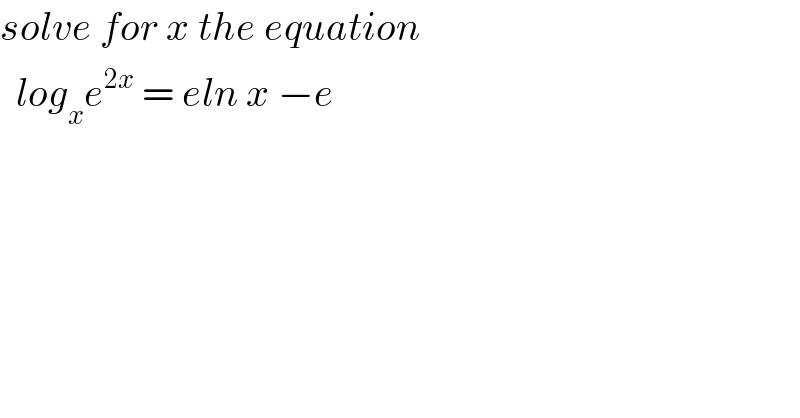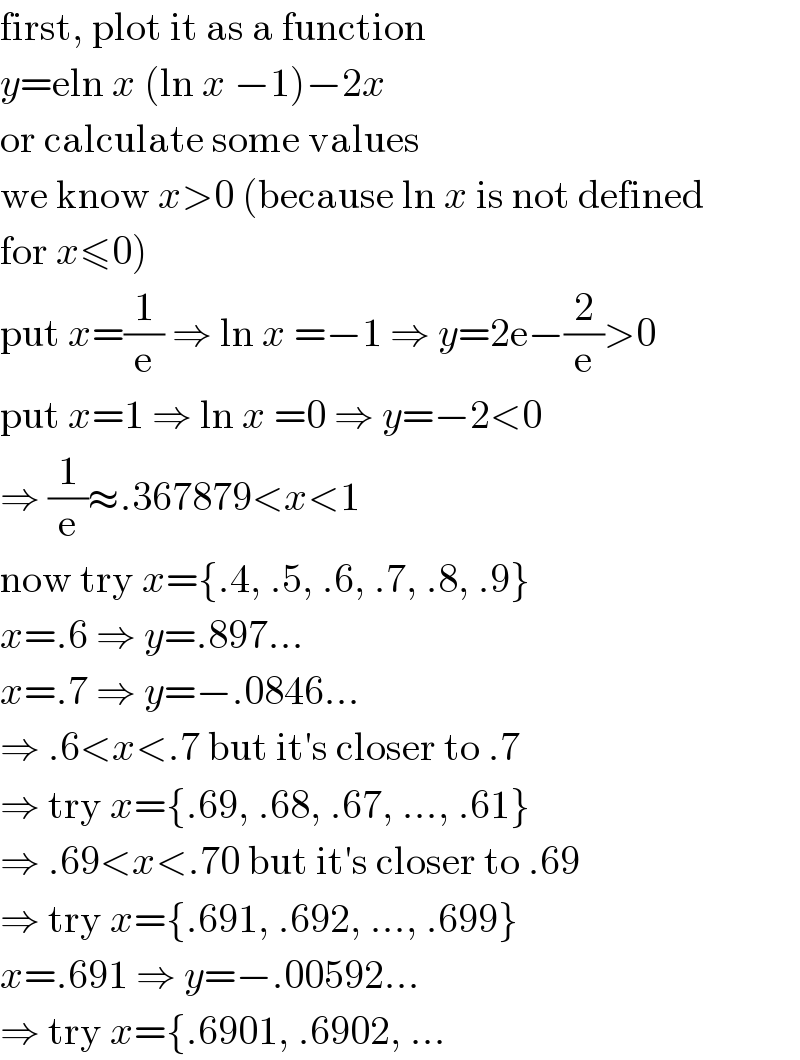
Question and Answers Forum
Question Number 68898 by Rio Michael last updated on 16/Sep/19

Commented by kaivan.ahmadi last updated on 16/Sep/19

Commented by kaivan.ahmadi last updated on 16/Sep/19

Commented by Rio Michael last updated on 17/Sep/19

Commented by MJS last updated on 17/Sep/19

Commented by Rio Michael last updated on 17/Sep/19

Commented by MJS last updated on 18/Sep/19

Commented by Rio Michael last updated on 18/Sep/19

